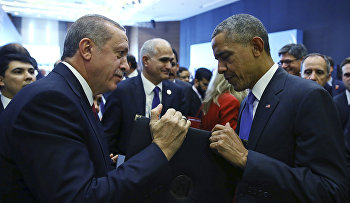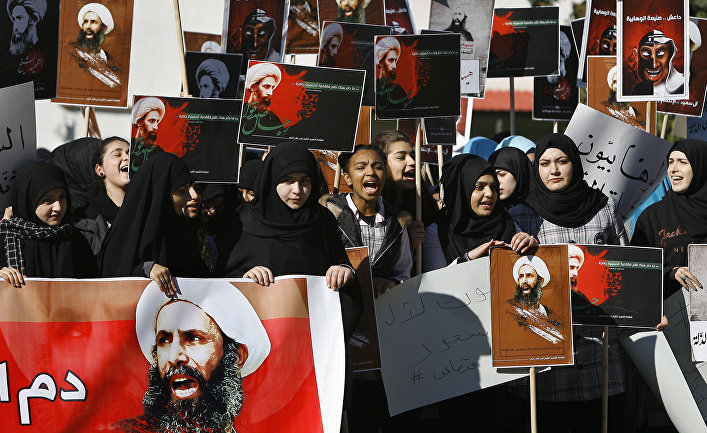If execution of a prominent Shiite cleric Nimr al-Nimr is an 'internal matter', why condemn Egypt? While the foreign and domestic policies of the ruling party destroy Turkey's interests, Ankara has to pay for it. Deploying soldiers into Iraq without informing local authorities and downing Russian SU-24 bomber are the two recent events that have marked Ankara's failure. Yet Turkey has had another fiasco considering that Ankara was supporting Saudi Arabia after the execution of 47 people including the leading Shiite cleric Nimr al-Nimr. Now recent turmoil with Iran, can push Turkey into a sectarian clash.
The very first official statement on the Saudi execution made everyone in Turkey think that it was a call for peace. But the following statements which declared support to Riyadh exposed 'bigoted management' and indicated that Turkey will not get out of this conflict with its foreign policy. Deputy Prime Minister Numan Kurtulmuş said “We are against all instances of capital punishment, especially when it is politically motivated. Enough is enough. We need our peace in the region.” These words are a reflection of a rational policy. But the statements from the Ministry of Foreign Affairs and President Recep Tayyip Erdoğan proved that Ankara's aggressive discourse, which has no common sense, has outweighed the rational.
Virginia Senator: "Saudi Arabia And Turkey Are The Greatest Threats To World Peace" https://t.co/l9CmyfqIUh
— zerohedge (@zerohedge) January 12, 2016
Erdogan's first reaction to the Saudi-Iranian conflict raised tension, Turkish President said “the executions in Saudi Arabia are an internal legal matter. Whether you approve of the decision or not is a separate issue.” If so why did Ankara condemn the executions in Egypt? When it comes to Saudi Arabia, it is 'internal legal matter.' Let's remember that human rights abuses, besides being a part of a nation's internal affairs, are clearly a violation of the international agreements which Turkey is also a part of. It is difficult to understand the issue with 'supporting the Saudis', as Riyadh has some made some decisions that are contrary to the interests of Ankara.

The Arab League, which Saudi Arabia is a member of, condemned Turkey's move of sending soldiers to Iraq. One mustn't forget that Qatar, which is one of the few allies in the Middle East, also signed that decree against Turkey. Erdoğan himself supported the establishment of a Sunni army led by Riyadh, although the latter sometimes follows contradictory policies. Also, although Saudi Arabia provides strong support to Egypt's President Abdel Fattah al-Sisi, who toppled Mohamed Morsi, it keeps the relations with Ankara at the lowest level.
When a state adopts policies challenging another nation, one mustn't cut all the relations, it's best to keep distance. It is difficult to explain why Turkey is constantly making concessions to Saudi Arabia, let alone keeping distance. If Turkish officials followed a more balanced path in this crisis, they would serve the country's interests and mend the relations with many Arab countries.
Another important point: Iran is Turkey's major gas supplier and nobody foresees the disadvantages of having bad relations with Iran as it was in the case of a crisis with Russia's.






